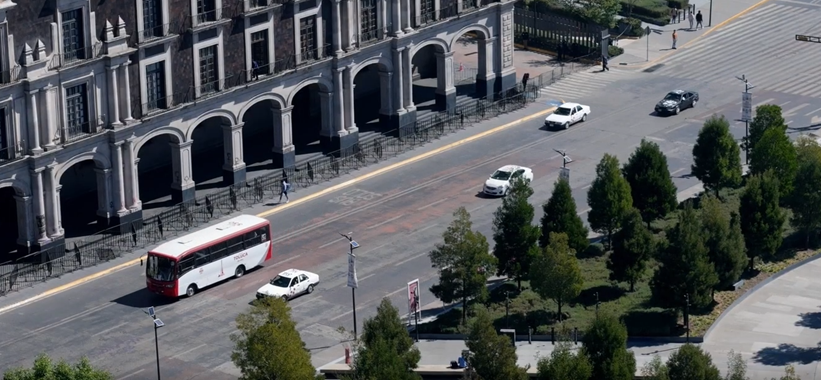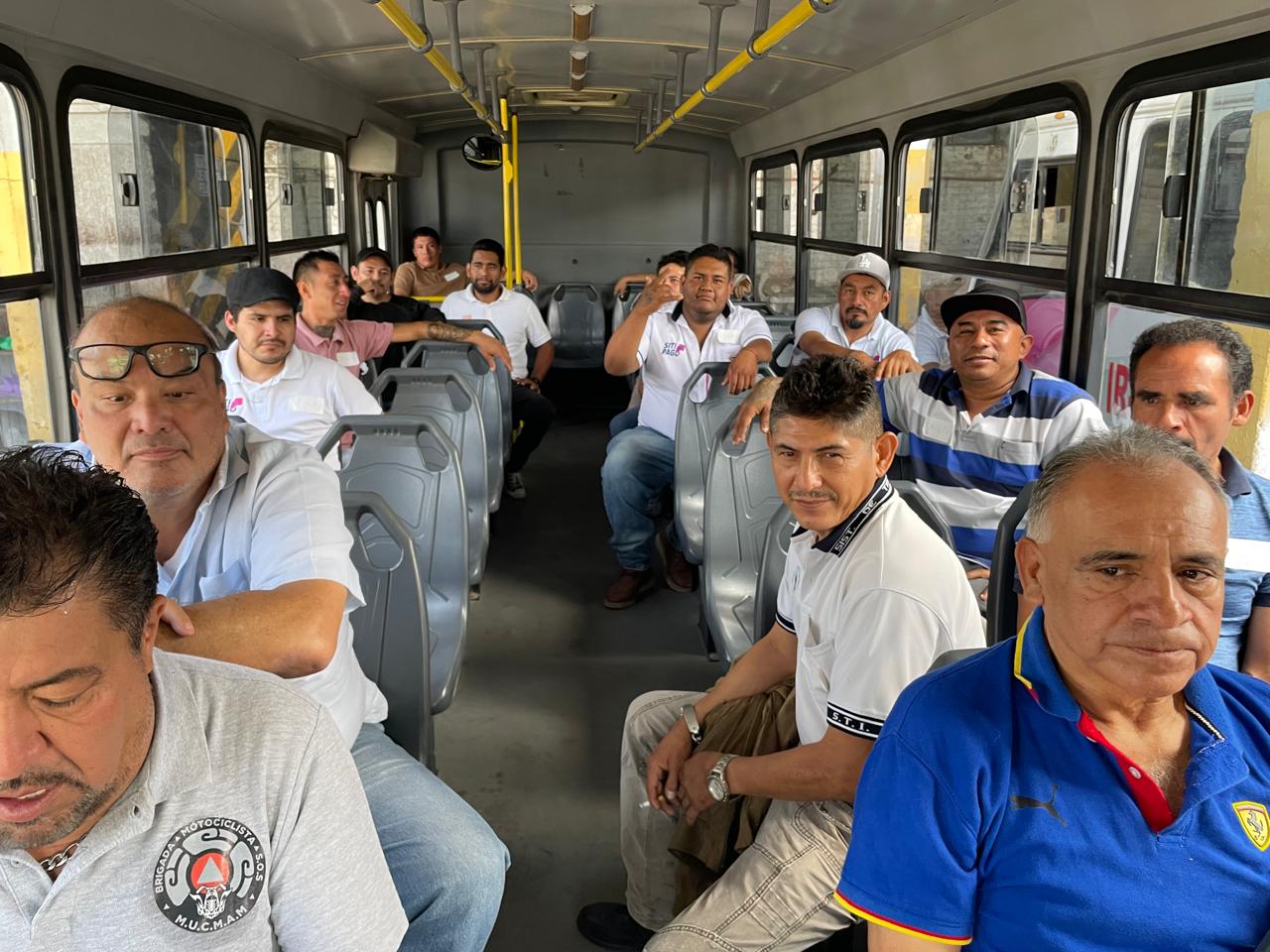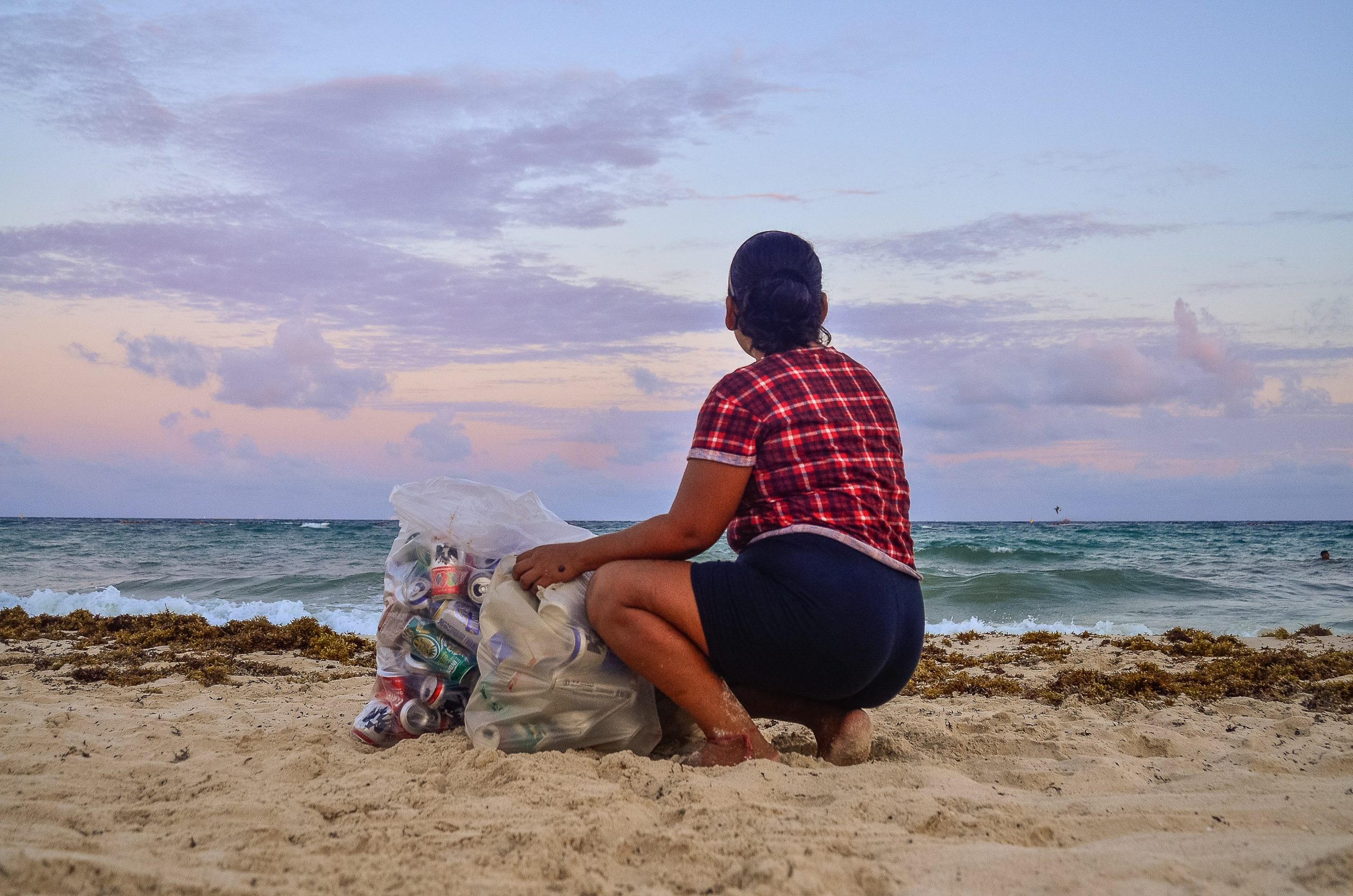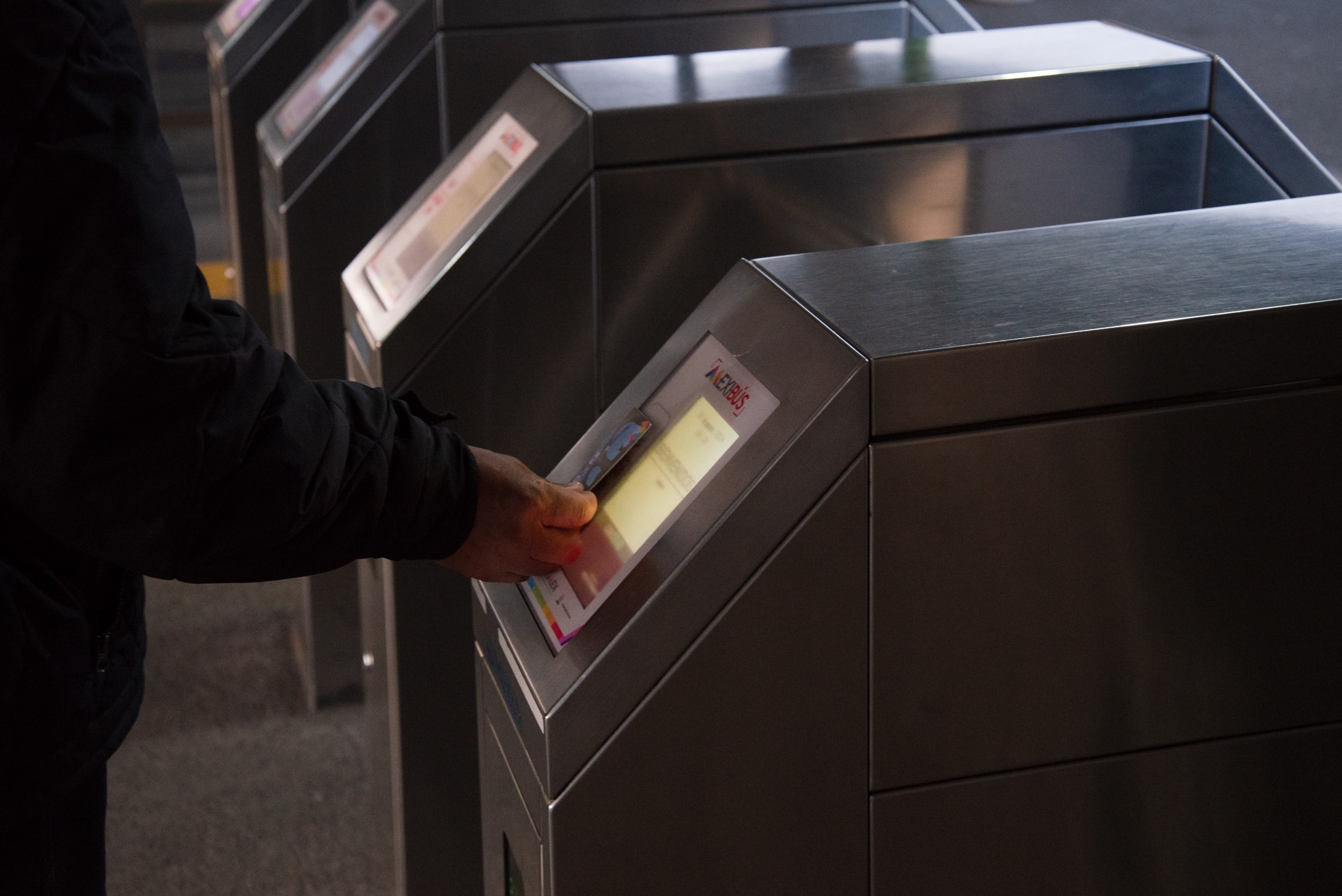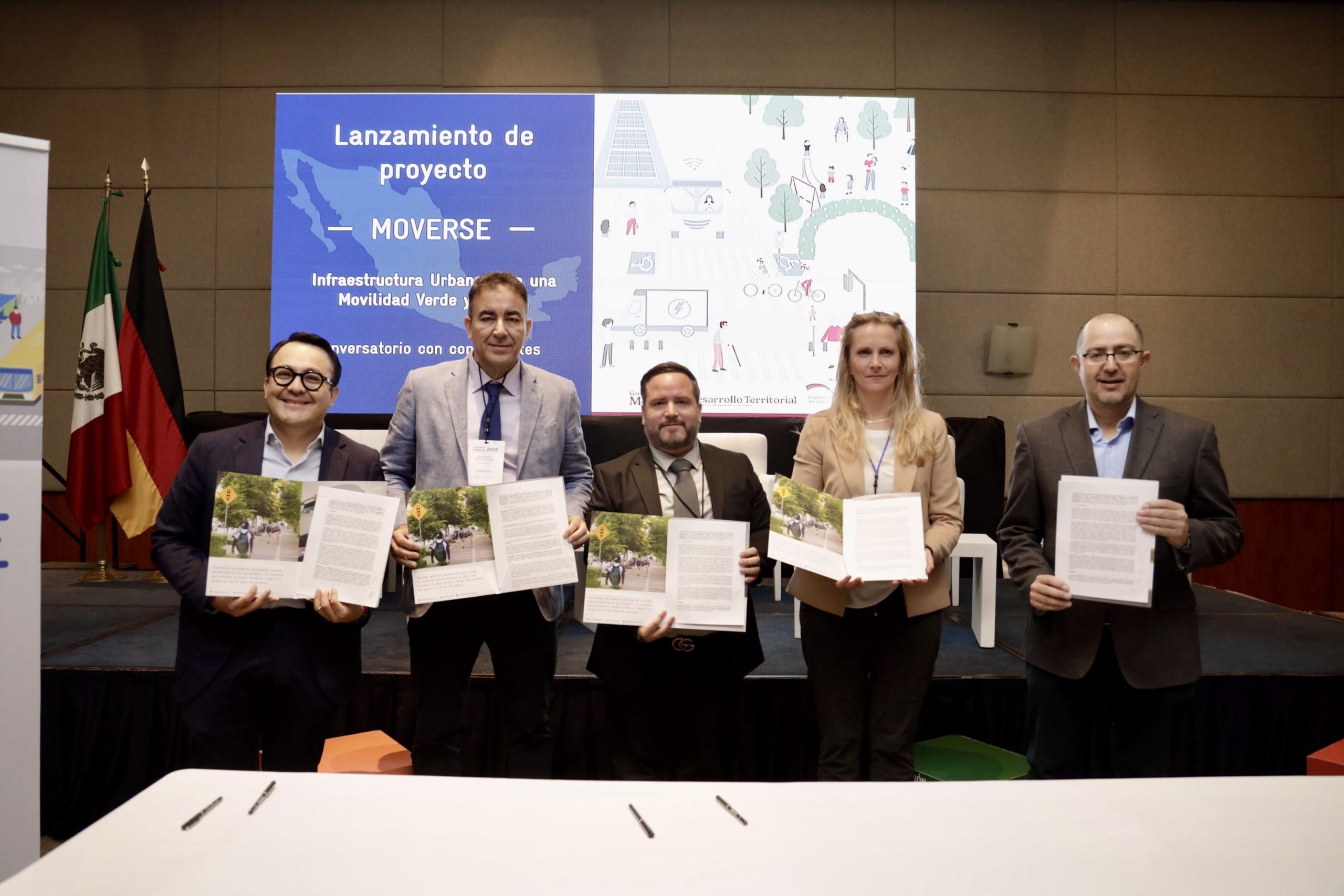| GIZ México | GIZ México |
|
Ivana Medina, Carolin Hoffman and Marco Garcia / septiembre 13, 2023
“I could say that it is like a refuge. It’s my childhood. The best moments of my life have been in that park since I was eleven years old until today,” shared Marco, troop leader of Group 15 Pericúes and a Scout for thirteen years.
The 15 Pericúes Group was founded in 2012 in the Parque Hundido Pedro Sánchez, since the Colinas de San José neighbourhood, in the city of San José del Cabo, state of Baja California Sur (Mexico), was new, and there was a desire to bring scouting to more youth and children.
“We adults couldn’t just jump in, because what really attracts the Group is not the adult working, but rather the child enjoying, the child knowing, the child learning, right?”, highlighted Ana Karina, founder of the Group and Scout for eleven years.
They started with only four boys; Marco was one of them. Over time, the group grew and became stronger. Childhood and youth developed a connection with the park that is difficult to understand for someone who has never been a scout. The park became a centre for ceremonies, leadership activities and connection with nature. It was a refuge.
In 2017, however, things changed.
“For safety reasons, because it got very difficult here, we moved to a school that is about 100 meters away,” Marco recalled.
Although they did not leave the park completely, and the school had amenities that the park did not – for example, bathrooms – something essential was lost: the direct connection with nature. The children and youth who later joined the group did not know this.
“At the beginning, it was difficult to go from the park to school because many of the activities had to be adapted,” recalled Ana Karina.
In 2020, the history of this Scout group suffered another setback: the start of the Covid-19 pandemic. Like the rest of the world, Group 15 Pericúes had to stop its in-person activities. The connection with nature and coexistence with the community was affected once again. “When I saw an image on Facebook of what the Park was like, the truth is that it made me very sad because everything was neglected. During the pandemic, the park collapsed completely,” Marco recalled.
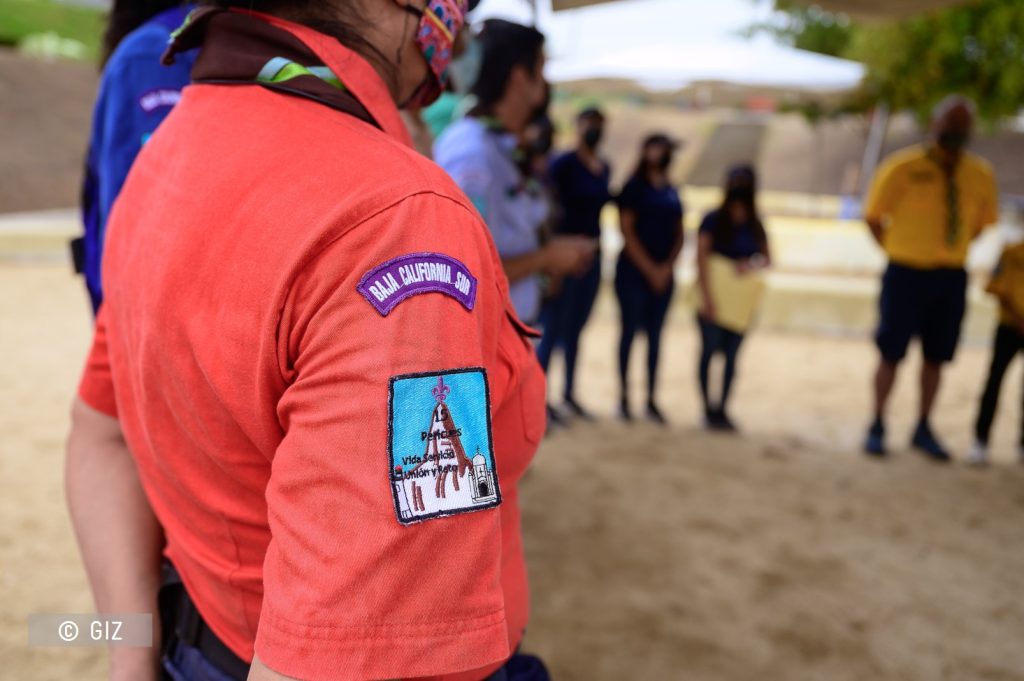
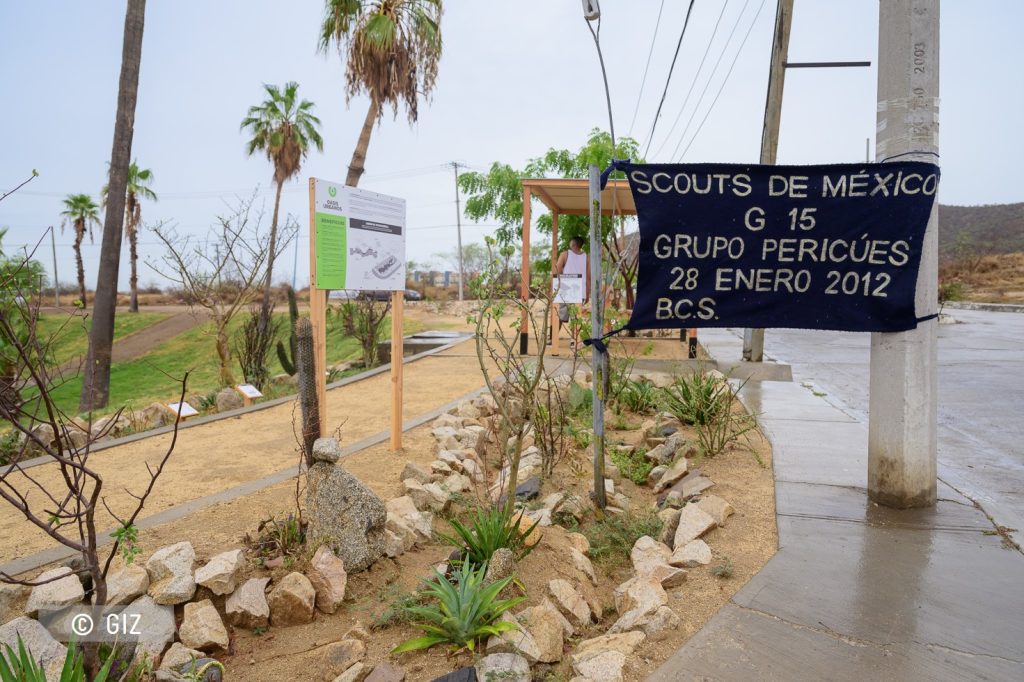
Restoration of an oasis
When Lorena Gudiño heard the characteristic whistle of the Scout call, she couldn’t help but follow it. As a GIZ collaborator, she was visiting the rehabilitation of Parque Hundido in May 2022, work that had started in January of that same year.
Lorena had been National Scoutmaster!
The call took her to the school where the Group 15 Pericúes was meeting. When Lorena found them, the group had only recently returned to in-person activities, although they continued meeting at school.
At that moment, the invitation to participate in the rehabilitation of the park arose. By all Scout principles, Ana Karina and Marco accepted the invitation.
“When we returned, and they allowed us to participate, the truth is that it gave me great pleasure to know that I could contribute something to the Park that meant so much to me,” recalled an enthusiastic Marco.
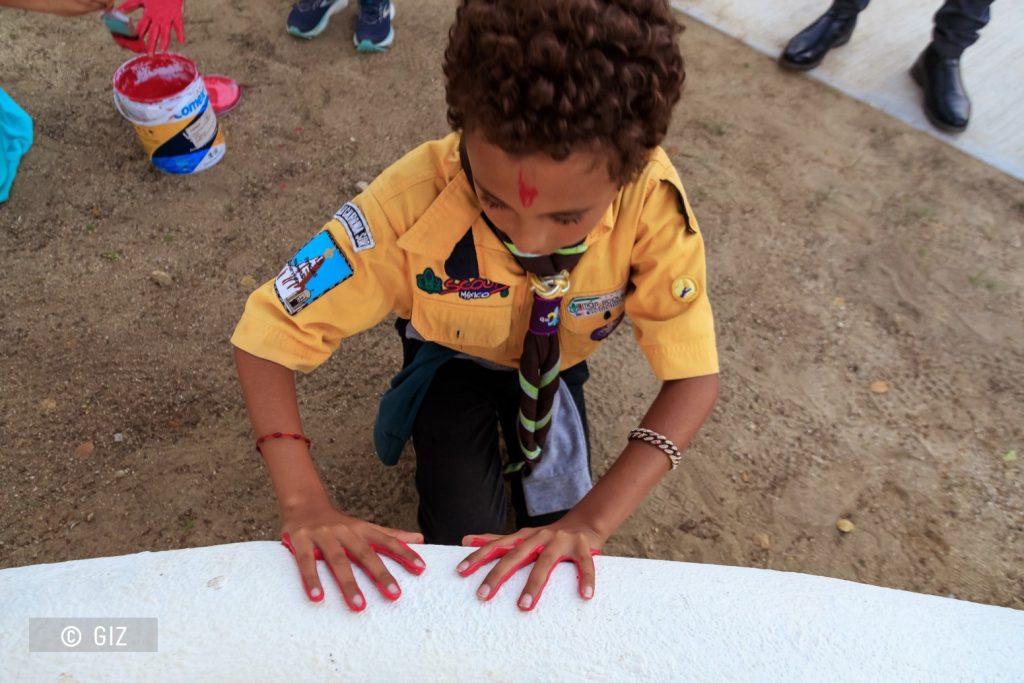
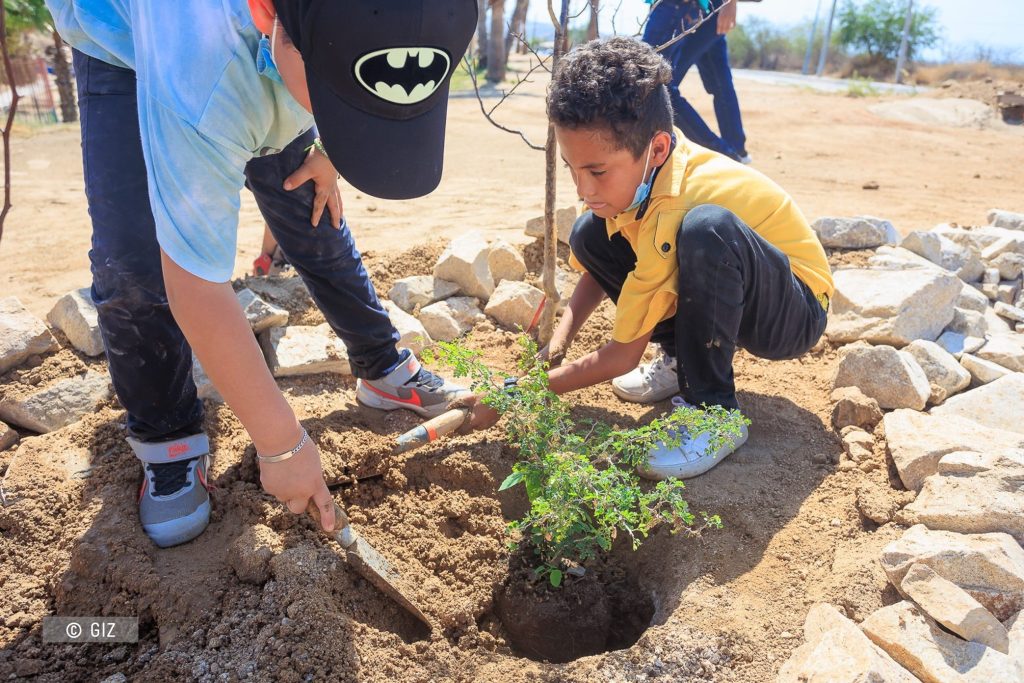
As part of the rehabilitation of the park, more than 300 native vegetation plants were planted, 3 rest modules, a bus stop, 8 basins and an absorption well to collect and store rainwater were created, 3 murals were painted and a botanical garden was created. Additionally, as part of this transformation, Grupo 15 Pericúes took first aid and personal finance courses.
“The moment they asked us to join the project, many children were enthusiastic. It was a very fulfilling experience because they acquired awareness and knowledge about what conservation of their own biodiversity and places is.
“It is very exciting to see that children not only have fun but also become aware. They join the need to preserve a place in which they feel very comfortable, happy, and free.
“When you see the feeling of the children, especially after, for example, the pandemic, in which they touch the ground, the grass, the plants or the trees again, the emotion they feel is a very beautiful thing. Those who did not know the activities in the park were able to have them; those who did not have the closeness with nature, as we had before, were able to begin to have it.
“The project helped us connect a little more with nature again, or connect the kids with nature again. “I really feel that the park is an oasis, now an oasis within the desert. It is a place where we can interact, it is a place of freedom and integration with nature,” Ana Karina recapitulated.
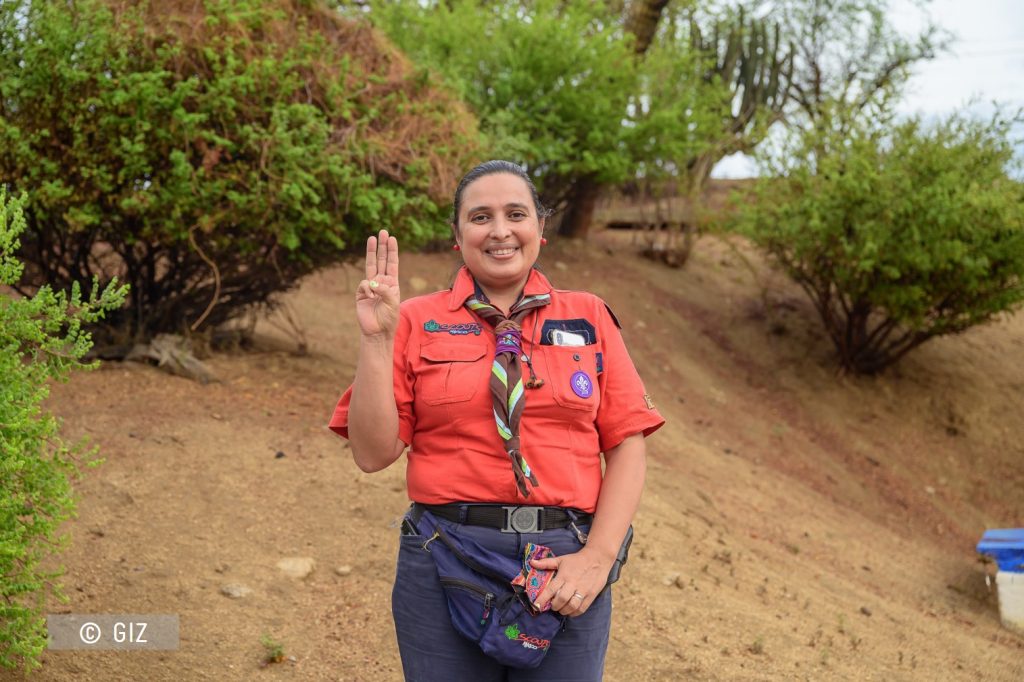
A Scout project
After a year of work by the Scouts, the event to present the results of the rehabilitation of the park, in June 2023, was an emotional moment.
“The day the park was delivered [presentation of results], when the video of the entire process was shown, the truth is that some people did cry because they appeared in the video. There is a [child] who saw himself putting his hands on a fence, his hands so small, and now, well, he has grown a little bigger. They are very excited to see how the park was and how it is here now thanks to you and their work,” Marco commemorated.
Currently, the Group 15 Pericúes has considered officially returning to the park. Although they will continue to meet at the school for certain activities and enjoy the facilities, such as classrooms and bathrooms, the group is already taking advantage of this rehabilitated public space.
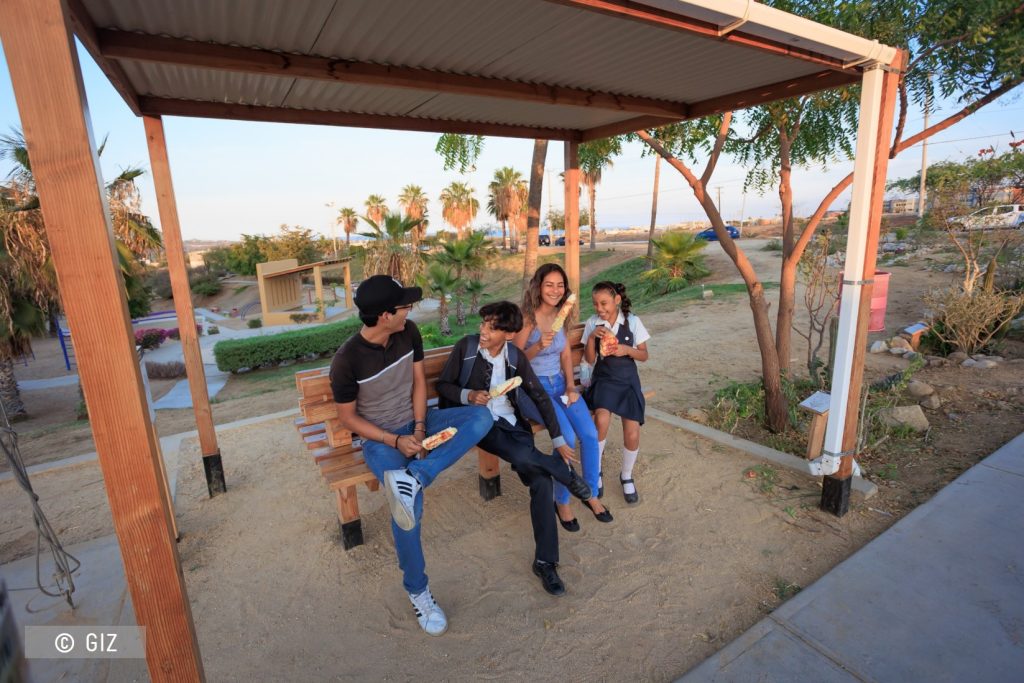
Likewise, true to their mission of service, the Scouts are willing to support the maintenance of the park by attending it once a week to ensure that there is no garbage and that it is in optimal condition.
“It’s like saying ‘it was difficult for me to make it like this, so I’m going to make an effort to keep it, because if I let it get careless, then it means losing all the effort we made,’” Marco said.
“It’s something cyclical: it nourishes you to see it, it makes you want to keep working, you keep working, you help them understand it and the learning circle goes again,” Ana Karina reflected.
The integration of the Scouts into the rehabilitation of Parque Hundido Pedro Sánchez was the product of a series of fortunate coincidences. However, their participation leaves us with a very valuable lesson: the construction of public spaces with and for the community, youth and childhood is key to having sustainable, healthy and prosperous cities.
“This is a project that, to be honest, seems like a Scout to me because it is a project that simply seeks to support and help a community, a place, and people without expecting anything in return other than the satisfaction of knowing that you did something good, to leave your mark and leave the world in better conditions than you found it», Marco concluded. After the results were delivered, the Los Cabos City Council announced that it would finance with 2.5 million Mexican pesos (~€138,000) the replica of the park model in another public space in the city.
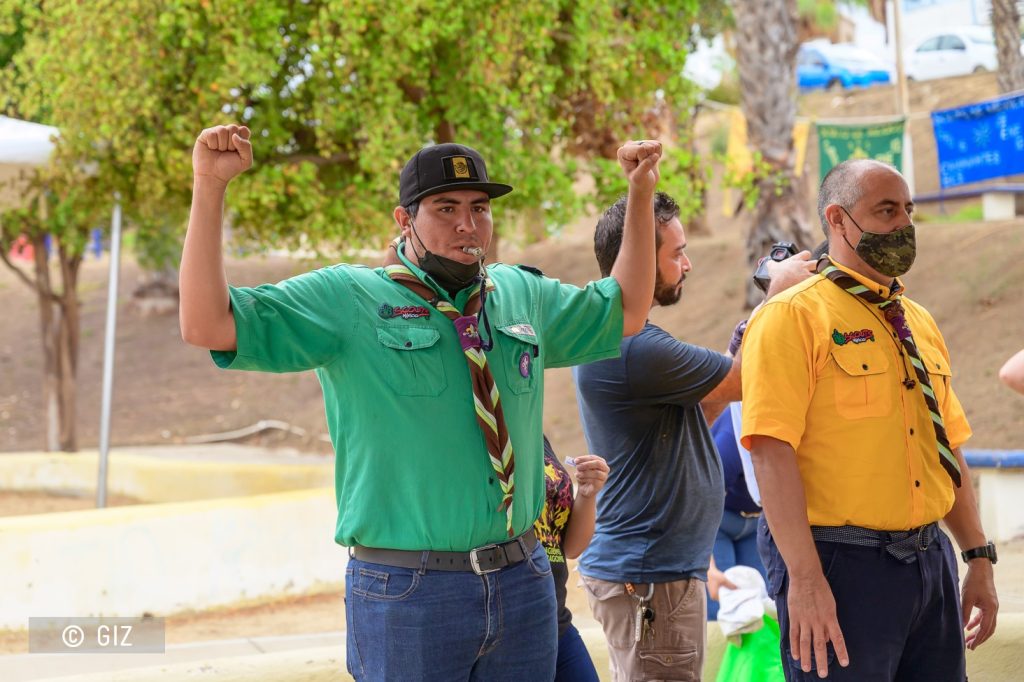
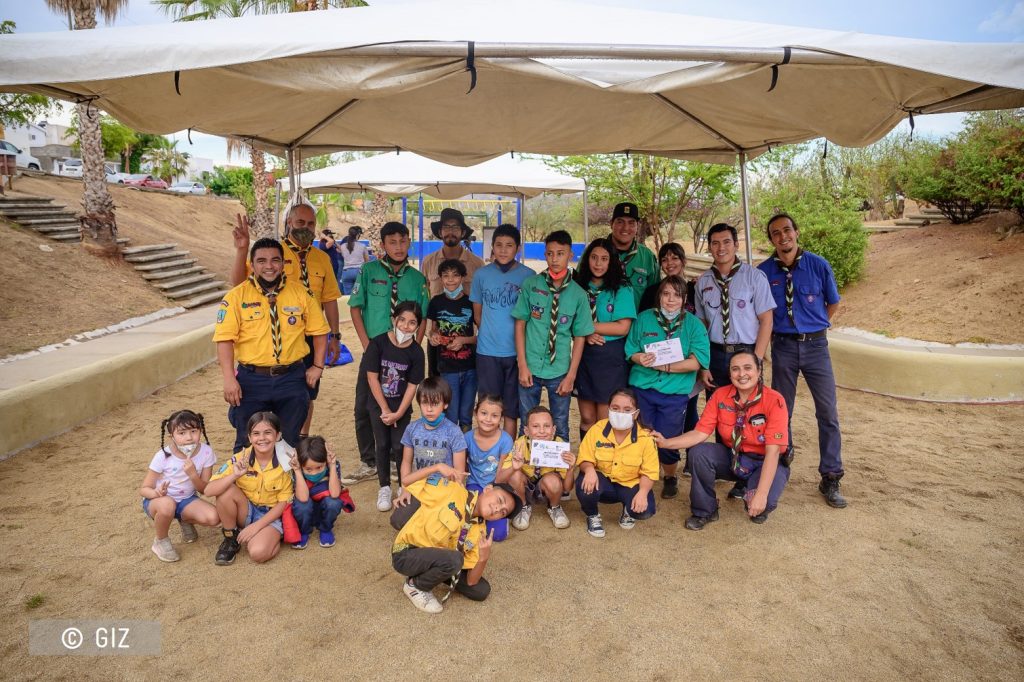
The restoration of Parque Hundido Pedro Sánchez was carried out as part of the “Our Resilient Neighborhood” initiative, carried out within the framework of the international call “Cities Challenge 2.0”.
In the rehabilitation of the park, actors from the government sector Municipal Planning Institute (IMPLAN) of Los Cabos and the Los Cabos City Council, the civil society organizations Niparajá, Urbanería, EPI México, Alianza por la Seguridad Alimentaria de BCS and Philantropiece, neighbours and Scouts of the Colinas de San José neighbourhood, worked together.
The initiative was coordinated by the project “Sustainable development of coastal urban regions through the integration of ecosystem services and biodiversity (BIOCITIS)”, implemented by the German Development Cooperation (GIZ), commissioned by the Federal Ministry of Economic Cooperation and Development (BMZ) of Germany.


